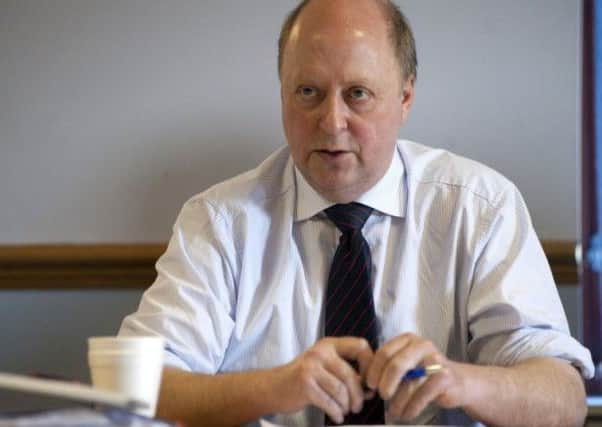Rural industry leaders examine post-Brexit landscape
This article contains affiliate links. We may earn a small commission on items purchased through this article, but that does not affect our editorial judgement.


These were just some of the issues to be placed on the wish-list at the first of what is set to be a series of top-level seminars looking towards the shape of Scottish rural policy post-2019.
• READ MORE: Farming news
Organised by SRUC, Scotland’s rural college, industry leaders and representatives delved into some of the options which might be available for domestic policy in the post-Brexit world after the UK leaves the confines of the EU and the security of the common agricultural policy behind.
Advertisement
Hide AdAdvertisement
Hide AdPredictably, there were no hard and fast answers to the huge task of drawing up a practical and successful plan to address what the many organisations and individuals with an interest in the countryside viewed as crucial issues.
But the broad outlines of some of the options which might be achievable were discussed – and some which were off the menu, such as a return to a deficiency payment scheme, were put to bed for good.
While there was a wide acceptance that the current system was far from perfect, there was also an acknowledgment that hurrying in a new system which had not been properly thought through was likely to have disastrous consequences – a message summed up in earthy terms by former NFU Scotland president Nigel Miller.
“It’s vital we have a soft Brexit and a transition period – for while it’s easy to say that the current system is pretty c**p, if we rush into things we could easily end up with one which is even worse,” he said.
And while there was an acceptance that this sort of timescale was necessary for farmers to adapt, it was also felt that the country lacked the capacity – in the form of civil servants and resources – to successfully re-write policy in the short time available.
This dictated that path dependency – the impetus for things to continue along the same tracks – meant that something similar to the current support system was likely to continue at least in the early post-Brexit years.
Advertisement
Hide AdAdvertisement
Hide AdBut economist Andrew Moxey, of Pareto Consulting, warned the meeting that the £600 million spent on agriculture in Scotland would be coming under ever closer scrutiny.
“And while stating that farm support accounts for only around 1 per cent of public spending doesn’t sound like much, reword this as penny in the pound on income tax and people will view the issue differently,” he warned.
He said that with the new scrutiny would come a far greater requirement to justify spending and the payment of “public money for public goods” – services which could not be paid for through the marketplace such as clean water and clean air and attractive landscapes – could be one way of doing this.
“Although even here we have to accept that in other industries they are penalised for environmental damage – not rewarded for not damaging it,” he commented.
A senior business analyst with SAC Consulting, Kev Bevan, also issued a reminder that almost regardless of what trade deals were done there was unlikely to be any bonfire of the regulations if the country wanted to continue trading with the EU.
However, his colleague, Steven Thomson, senior agricultural economist with the college, warned that as well as tariffs and quotas, there could be a considerable logistical price to pay to gain access to EU markets from outside the single market and customs union – with 20 per cent checks on physical and 100 per cent checks on paperwork accompanying every consignment traded with the EU.